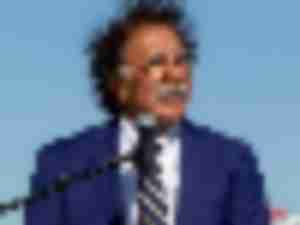Deadlocked labor negotiations confront three Canadian container ports
Potential waterfront labor stoppages at Vancouver, Prince Rupert and Montreal are once more on the radar screen. Federal mediators have been brought in to help avert a repeat of the strike actions by unionized dockers against maritime employers at Canada’s three biggest container ports that severely hit supply chains in the past few years.
Beacon’s O’Connell says U.S. West Coast port surge over rivals might be lengthy
West Coast ports, particularly Los Angeles and Long Beach but also Oakland, Seattle-Tacoma, and Vancouver, are expected to benefit from a surge of import and export business related to accessibility problems at the Panama and Suez Canals.
GSC announces its expansion at Port of Savannah
Oakland, California based GSC, one of the largest 3PLs in Northern California and the Pacific Northwest, announced that it is expanding its services by opening an office at the Port of Savannah.
2024’s profusion of government elections: A potential disruptor for the supply chain?
With 76 major elections to be held in 2024, could the outcomes prove to be a disruptor for the supply chain?
Air freight flying high in Hawaiian skies
There is a lot of air freight business happening in Hawaiian skies. But as the old expression says, it’s complicated
Dagher says offshore wind supply chain problems are manageable
Part two of a two piece feature on the future of offshore floating wind power in the U.S. with the University of Maine’s Dr. Habib Dagher, the executive director of the University of Maine’s Advanced Structures and Composites Center.
Cordero calls for more collaboration in State of the Port Address
Port of Long Beach’s Cordero calls for closer collaboration with Los Angeles and cites rail, wind, and hydrogen Investments...
DB Schenker: Biggest takeover of a logistics group so far this century
The upcoming sale of German state-owned DB Schenker is big news — $13 to $16 billion — worth is the estimated sales value of the company. But who will buy this giant logistics enterprise and at what price? These are big questions that loom for not only Schenker’s but the entire logistics industry...
Dr. Dagher advocates offshore wind “Marshal Plan” for U.S. ports
Part one of a two piece feature on the future of offshore floating wind power in the U.S. with the University of Maine’s Dr. Habib Dagher, the executive director of the University of Maine’s Advanced Structures and Composites Center.
Trucknet sets up a Gulf-Israel/Egypt land bridge
Trucknet’s landbridge operation bypasses the troubled Red Sea pinch point...
© Copyright 1999–2025 American Journal of Transportation. All Rights Reserved











